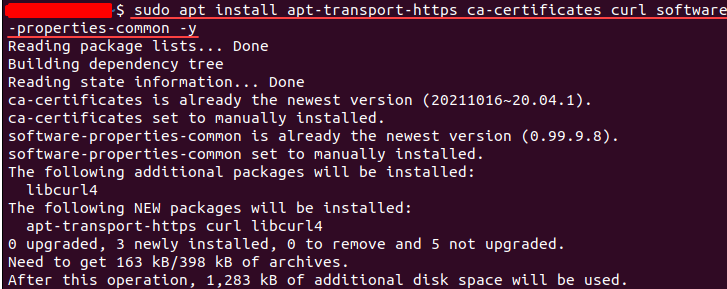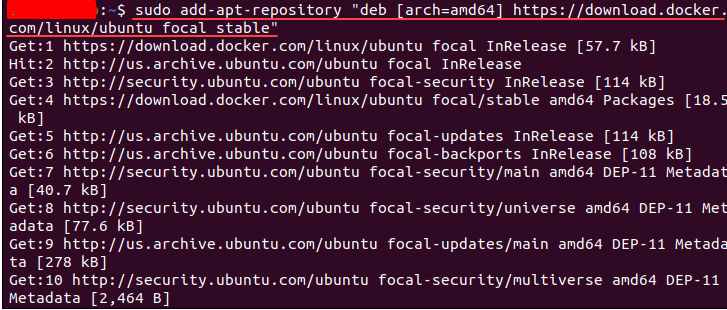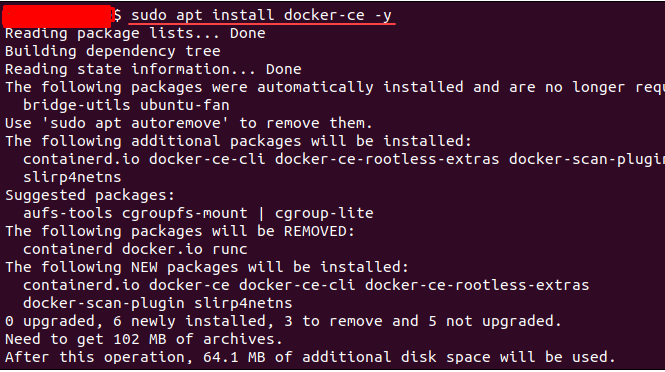
Introduction
Docker is a robust platform that enables developers to deploy, create, and run applications in private environments called containers. Containers bundle an application with all its dependencies, ensuring stable performance across different environments.
This blog will guide you through installing and utilizing Docker on Ubuntu, the most popular Linux distribution.
Why Install Docker on Ubuntu?
Ubuntu is properly known for its robustness, user-friendly interface and widespread adoptions, it’s also a robust platform for seamlessly operating Docker. Here’s a reason why you should need installing Docker on Ubuntu:
Simplified Application Deployment
Streamlining and simplified application deployment is the main advantage of Docker. Also, Docker containers are capable of summarizing an application and its dependence, enabling it to run smoothly in various different environments.
This results that an app that is created and developed on your local machine can easily work on the same way when it is being deployed on a production server, decreasing the notorious errors.
Effective Resource Utilization
Docker containers are designed and developed efficiently compared to traditional virtual machines. While these machines require a full OS for each instance, containers share the host system’s kernel and resources. Therefore, you can easily operate many more containers on the same hardware compared to virtual machines, which leads to better system resources.
Enhance DevOps Practices
Docker plays an important role in modern DevOps practices by allowing continuous integration and deployment (CI/CD). With Docker, Developers can easily create standardized environments for building, testing, and deploying applications. This consistency also reduces the chances of error discrepancies between production and development environments
Isolation and Security
Docker container offer isolation for applications, resulting in each container operating independently. Also, this isolation enables one application’s failure to not impact other applications running on the same host. In addition, Docker’s isolation abilities also add an extra layer of security by separating apps from each other and the host system.
Steps for Installing Docker on Ubuntu
Step 1: Update the Package Repository
Run the following command to update the system’s package repository and ensure the latest prerequisite packages are installed:
# sudo apt update
Step 2: Install Prerequisite Packages
# sudo apt install apt-transport-https ca-certificates curl software-properties-common –y

Step 3: Add GPG Key
A GPG key verifies the authenticity of a software package. Add the Docker repository GPG key to your system by running:
# curl -fsSL https://download.docker.com/linux/ubuntu/gpg | sudo apt-key add –

Step 4: Add Docker Repository
Run the following command to add the Docker repository to apt sources:
# sudo add-apt-repository “deb [arch=amd64] https://download.docker.com/linux/ubuntu $(lsb_release -cs) stable”

Step 5: Install Docker
Install Docker by running:
# sudo apt install docker-ce –y

Step 6: Check Docker Status
Check if Docker is installed, the daemon started, and the process is enabled to start on boot. Run the following command:
# sudo systemctl status docker

Summing Up
Installing Docker on Ubuntu has several benefits, from easy application deployment to effective resource use. Ubuntu’s robust and easy-to-use environment commends Docker’s capabilities, making it a more suitable choice for system developers and system administrators who are looking to optimize their infrastructure and workflows.
Frequently Asked Questions
Q 1: What is Docker used for?
Ans: Docker is used for creating, deploying, and running applications in isolated environments called containers. Containers bundle an application with all its dependencies, ensuring consistent performance across different environments.
Q 2: What is the command to start Docker in Ubuntu?
Ans: The command to start Docker in Ubuntu is:
sudo systemctl start docker
Q 3: How do I access Docker on Ubuntu?
Ans: You can access Docker on Ubuntu through the terminal by using Docker commands. For example, to check the Docker version, use:
docker –version
Q 4: What is the main advantage of using Docker?
Ans: The main advantage of using Docker is its ability to ensure that applications run consistently across different environments, simplifying deployment and reducing compatibility issues.
Q 5: Is Docker free to use?
Ans: Yes, Docker offers a free Community Edition (Docker CE) that is suitable for individual developers and small teams.
